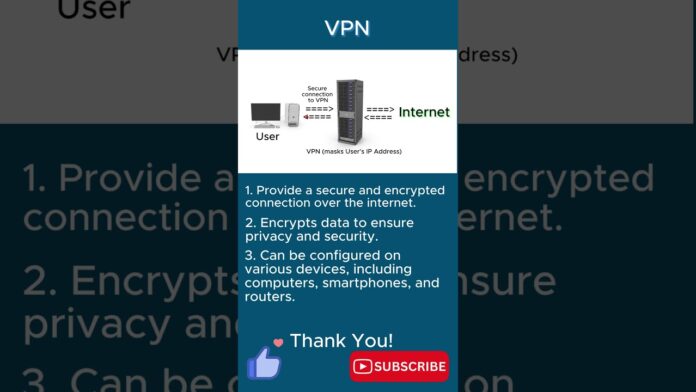In the digital landscape of today, where privacy, security, and remote access are paramount, Virtual Private Networks (VPNs) emerge as a beacon of connectivity, offering users a secure and private gateway to the vast expanse of the internet. From safeguarding sensitive data to bypassing geo-restrictions, VPNs have become indispensable tools for individuals, businesses, and organizations alike. In this article, we embark on a journey through the realm of VPNs, exploring their functionalities, benefits, and diverse applications in the realm of networking.
Understanding Virtual Private Networks (VPNs):
A Virtual Private Network (VPN) is a technology that establishes a secure and encrypted connection over a public network, such as the internet, allowing users to transmit data securely and anonymously. By creating a private “tunnel” through which data travels, VPNs protect user privacy, encrypt sensitive information, and mask their IP addresses, thereby ensuring anonymity and security in the digital realm.
Key Components of VPNs:
- Encryption Protocols: VPNs utilize encryption protocols such as SSL/TLS, IPSec, and OpenVPN to encrypt data packets transmitted over the network, rendering them indecipherable to unauthorized parties.
- Tunneling Protocols: Tunneling protocols like PPTP, L2TP/IPSec, and SSTP encapsulate data packets within secure “tunnels” for transmission across the internet, safeguarding them from interception or tampering.
- VPN Clients and Servers: VPN clients, installed on user devices, establish connections to VPN servers hosted by VPN service providers. These servers act as intermediaries between users and the internet, routing and encrypting data traffic on behalf of users.
Benefits of VPNs:
- Enhanced Security: VPNs encrypt data traffic, protecting it from interception, eavesdropping, and cyber threats. This ensures the confidentiality and integrity of sensitive information transmitted over the internet.
- Privacy Protection: VPNs mask users’ IP addresses and browsing activities, preserving their anonymity and privacy online. This shields users from tracking, surveillance, and profiling by internet service providers (ISPs), advertisers, and malicious actors.
- Access to Restricted Content: VPNs allow users to bypass geo-restrictions and censorship imposed by governments or content providers, granting access to region-locked websites, streaming services, and online content from anywhere in the world.
- Secure Remote Access: VPNs enable remote workers to securely access corporate networks, servers, and resources from anywhere, ensuring seamless connectivity and productivity for distributed teams.
Applications of VPNs:
- Remote Work: VPNs enable remote employees to securely connect to corporate networks and access internal resources, applications, and data from remote locations, fostering collaboration and productivity.
- Online Privacy: Individuals use VPNs to protect their online privacy, anonymize their internet activities, and secure their personal data from surveillance, tracking, and cyber threats.
- Geo-Spoofing: VPNs allow users to spoof their IP addresses and appear as if they are browsing from different locations around the world, bypassing geo-blocks and accessing region-restricted content.
- Public Wi-Fi Security: VPNs provide a layer of security for users accessing public Wi-Fi networks, encrypting their data transmissions and protecting them from interception or snooping by malicious actors on the same network.
Virtual Private Networks (VPNs) represent a cornerstone of modern networking, empowering users with privacy, security, and freedom in the digital realm. Whether it’s safeguarding sensitive data, bypassing censorship, or enabling remote work, VPNs play a vital role in ensuring secure and seamless connectivity in an increasingly interconnected world. As the demand for privacy and security continues to rise, VPNs will remain indispensable tools for individuals, businesses, and organizations seeking to navigate the complexities of the digital landscape while preserving their online freedom and security.
